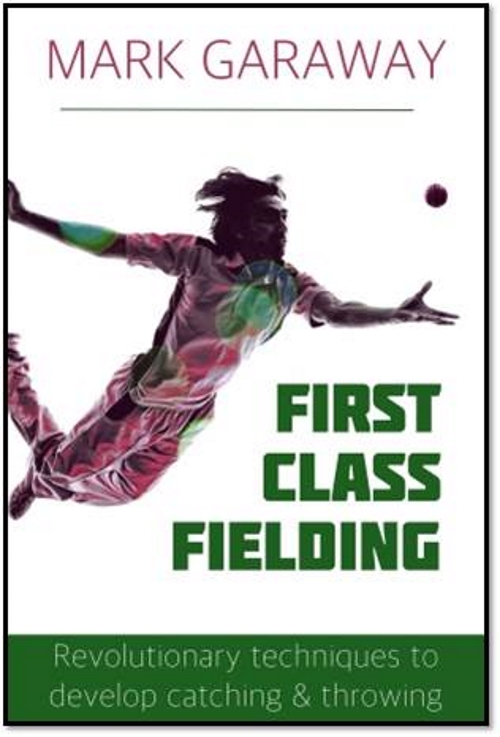How to Pick Length
 The relationship is simple: The better you pick length, the better you are as a batsman. It's, at least, one third of the art of batting.
The relationship is simple: The better you pick length, the better you are as a batsman. It's, at least, one third of the art of batting.
Yet, as a coach, I see many players struggle to pick length well. They hit balls in practice all day long and look technically sound. Then they go out in the middle and get caught playing forward to a back of a length ball, and spooning a simple catch up in the air.
People say things like "he's stuck on the crease", "he falls over" and "he's too defensive". While all these comments may be true, they are not the root cause. The root cause is often not picking the ball in time to get into the right position.
Do you recognise these symptoms in yourself?
Here's my solution.
Master High Pressure Cricket Moments with These Four Simple Messages
Here's an article that looks at the strategies used by NFL football players to deal with the huge pressure of playing in professional sport. It's simplicity can be applied perfectly to cricket:
"Pressure is a reflection of ambition. Rather than viewing the pressure as a negative, look at it as a great opportunity. It means that you know what you want, and that you actually have a chance of obtaining it.
Quick Tip: Train for Bad Times

One easy habit at nets is training for when things are going well. You imagine you are on target with bat or ball.
But cricket doesn't work like that: Teams collapse with the bat and find it impossible to break a partnership with the ball. So, we need to train for those times where it's all going wrong.
It's easy to do. Simply put yourself into a "distaster scenario", either as middle practice or in nets.
OUT NOW: Exclusive Online Coaching with Graham Gooch
 From today, Runmaker, the cricket coaches guide to developing high-class batsmen and runmakers from Graham Gooch , is available exclusively on PitchVision Academy.
From today, Runmaker, the cricket coaches guide to developing high-class batsmen and runmakers from Graham Gooch , is available exclusively on PitchVision Academy.
The man with over 67,000 professional runs has - for almost 30 years - coached batsmen for both Essex and England to emulate his technical knowledge, powers of concentration and incredible work-ethic. Now, through his streaming video course, he will show you how to develop the next generation built for scoring reliable, "daddy" innings in all situations.
To do this, Gooch has developed a system of player development that brings out the best technical skill, attitude and concentration in each individual. If you coach batsmen at any level, the Runmaker system shows you how to get the best from them no matter what their personality and individual skill.
All the streaming videos are split into chapters to make it totally relevant to your needs, and the accompanying eBook lets you take the advice anywhere:
- Batting drills used by Gooch
- The technical "non-negotiables" of batting
- Ways to deal with talented but difficult players
- A systematic coaching method that covers the four most important aspects of coaching runmakers
- Ways to coach a better work ethic into batters
The course was filmed at the Essex County Ground, with detailed streaming video demonstrations of techniques and drills alongside an insightful interview that taps deeply into Gooch's thinking as a coach.
Unlike a traditional coaching manual or DVD, you can interact with others on the course, take on the advice and video tips and apply them immediately. The eBook can be downloaded and read anywhere, any time.
It's a coaching masterclass.
Graham Gooch on Coaching Batting Technique
 This article is an exerpt from the Graham Gooch Runmaker eBook available on PitchVision Academy. For more details, click here.
This article is an exerpt from the Graham Gooch Runmaker eBook available on PitchVision Academy. For more details, click here.
I want to talk a little about working on technique with a batsman, one to one.
EXCLUSIVE: First Class Fielding Course from Mark Garaway out Now, Buy Today on Pitchvision Academy
 PitchVision Academy is delighted to announce that Mark Garaway's online coaching courses First Class Fielding is out now, exclusively on PitchVision Academy.
PitchVision Academy is delighted to announce that Mark Garaway's online coaching courses First Class Fielding is out now, exclusively on PitchVision Academy.
As you know, a few weeks ago we announced the ex-England Analyst and current Director of Coaching at Millfield School was revealing his methods in his first ever online coaching course. And since then it’s been a feast of fielding action on the site as a preview to the main event.
Now the wait is over, First Class Fielding available to purchase on PitchVision Academy. Get it now.
Richard Bailey on Practical Ways to Get Better at Cricket
Dr. Richard Bailey has written from a coaches view on helping players learn more quickly. Whether you coach or not, there are insights for becoming a better cricketer.
"According to some books for teachers, skill learning should take up to 3/4 of lesson time. As far as I can see, the only outcome of this approach is that learners switch off, and end up simply going through the motions. Effective practice activities should be relatively short, intense, and highly focused. They should also be immediately followed by an application in a meaningful game."
This article is refreshing is a land of dry theory because it gives several practical steps. It also opens up some ideas for discussion.
The Complete Guide to Batting
If you want to learn how to bat, here is the place to start.
Batting is a difficult cricket skill made more difficult by the pressure of having one chance before your innings is over.
Get Creative: 5 Ways to Adapt to Poor Training Facilities
 Have you ever thought about how often life doesn't go according to plan? It certainly has occurred to Darryl Woods.
Have you ever thought about how often life doesn't go according to plan? It certainly has occurred to Darryl Woods.
Darryl is a coach who, like every one of us, has had times when training has been challenging. Things don't always go according to plan through no fault of the coach. It's in moments like this that you have to adapt. And if you are quick thinking you can claw victory from the jaws of defeat.
Recently I caught up with Darryl over Skype. In a wide-ranging chat about cricket at club, school and rep level we got to speaking about those moments where life gets difficult. I enjoyed some of the tips so much I asked if we could get them out to the wider world though this article. As you are reading this now, you know he agreed! So, here are some real life examples of how you can adapt.

 Does this story ring true with you?
Does this story ring true with you?